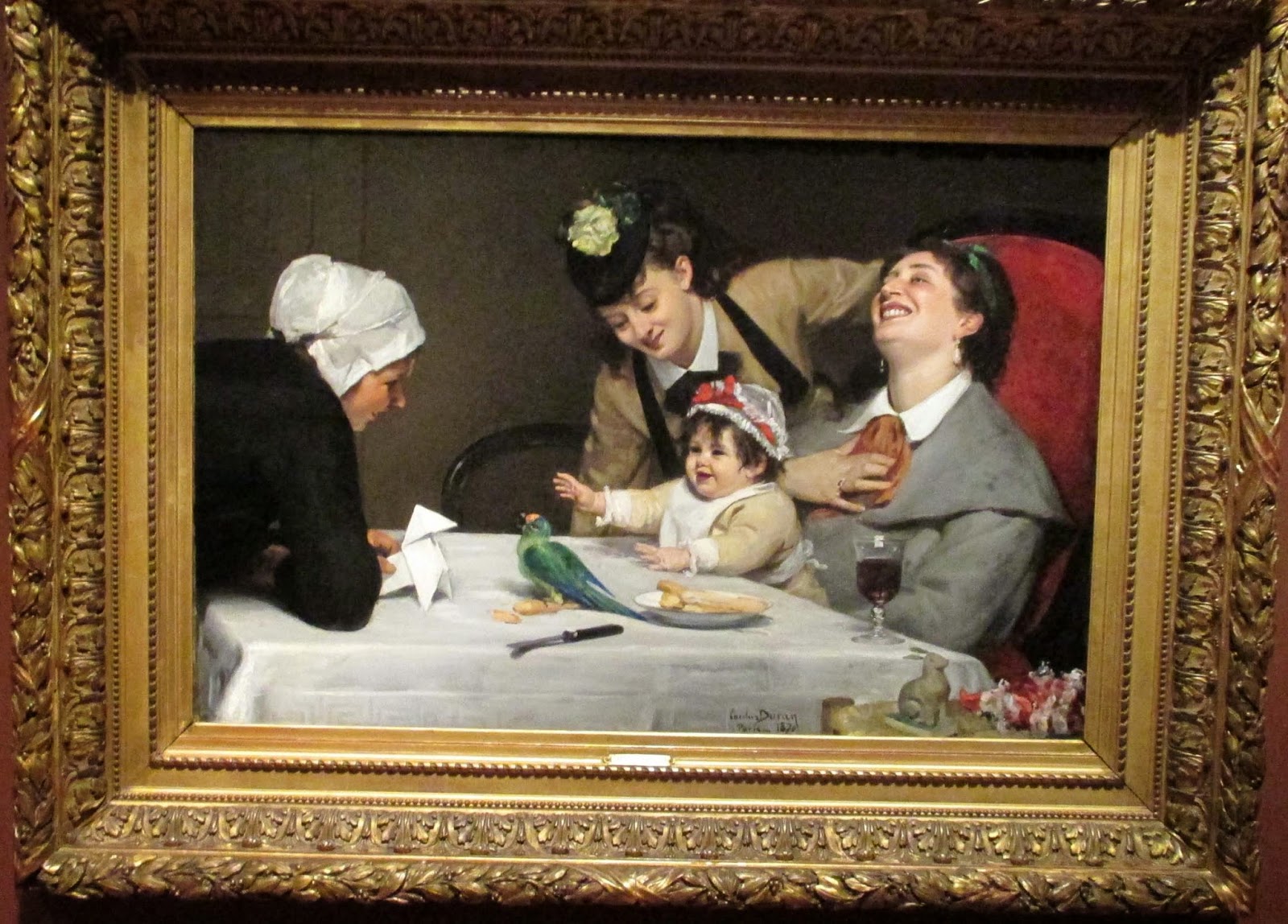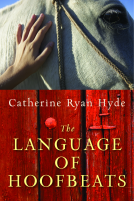
I discovered the poetry of Edgar Allan Poe when I was eleven or twelve. My Grandfather Lynne O. Ramer had a 1904 Commemorative set of the works of Edgar Allan Poe which he had purchased in his college days in the 1920s.
I borrowed those books over and over until Gramps just gave them to me. I most loved the poems, especially
The Raven.
"And the silken, sad uncertain rustling of each purple curtain
Thrilled me--filled me with fantastic terrors never felt before..."
Such wonderful language! Such words!
It is hard to imagine my grandfather--a church deacon, engineer, and mathematics professor-- reading Poe. His college library included
Vanity Fair by Thackeray and
The Hunchback of Notre Dame by Hugo,
The Last of the Mohicans by Cooper, essays by Emerson and poetry by Lowell and Wordworth. Poe seems to be a wild card in this library.
When I was older Gramps lent me books of historical fiction (
Kenneth Roberts), non-fiction (
Arch Merrill's books about early New York State history;
I Was A Fugitive From A Chain Gang) science (Velikovsky's pseudo science book
Worlds in Collision); and politics (
The Political Plague of America a self published book by someone he knew and which he highly edited in the book). I never knew him to read poetry or fantastic stories.
Strange tales and the macabre' were not new to me. I'd grown up on "Twilight Zone" and "Alfred Hitchcock Presents" television shows! I had seen Hitchcock movies; when my folks went to the drive-in movies I was supposed to be asleep in the back of the car but instead saw "The Birds", "Marnie", and "The Amazing Shrinking Man". (Yes I did have nightmares after viewing these movies.)
I read the stories of terror and horror and the early detective stories. But it was the poems I returned to most often, and this volume shows the most wear of all the set.

.
Over the next years he gave me a number of books to read. I borrowed
101 Famous Poems so often he also gave it to me. I previously have blogged about at
http://theliteratequilter.blogspot.com/2013/09/one-hundred-and-one-famous-poems.html

Eventually I inherited most of Gramp's college books, each with his own book mark. As an orphan boy working his way through college he would have had to sacrifice to find the money to buy his precious books. I always loved his bookmark.
Some great info about Poe and
The Raven can be found at
http://knowingpoe.thinkport.org/writer/annotated.asp
and
http://www.poedecoder.com/essays/raven/
A fun but through article on all aspects of The Raven: http://www.shmoop.com/the-raven/
An article that explains why Poe chose to use the pseudonym Quarles when he published The Raven
can be found at http://www.jstor.org/stable/27533122?seq=1
The complete poems of Edgar Allen Poe can be found
at http://docsouth.unc.edu/southlit/poeraven/poeraven.html
The end of Volume IX has advertisements including this one for Funk & Wagner's revised and enlarged
English Synonyms, Antonyms and Prepositions, "Exquisitely bound in full crushed Levant, gilt edges, hand tooled, raised bands, boxed for $10":
The Wonder of Words!
Have you ever fully realized the wonder and witchery of words? A single word can be a blessing or a curse, an incantation or a prayer, a blow or a caress. And the study of words is thrilling! Thousands of men and women who daily use the English language get no further than a stinted vocabulary, when a little study would soon give them mastery of a vocabulary that would express countless shades of meaning.
That copywriter was right about the power of words. And Poe's poetry is a wonderful example.















































